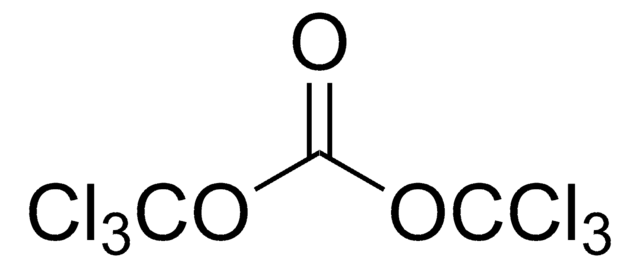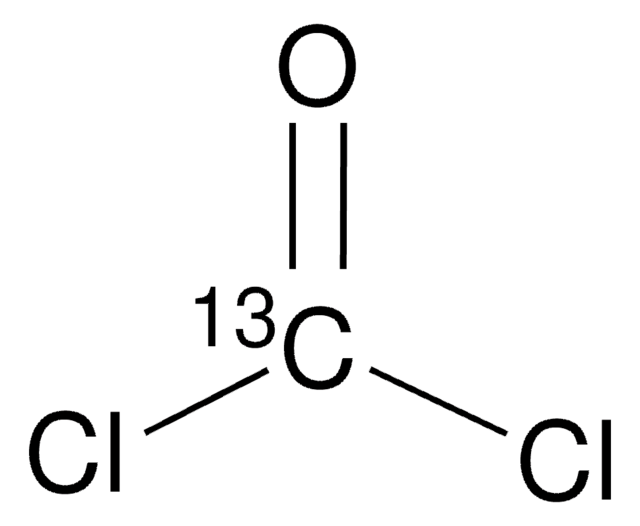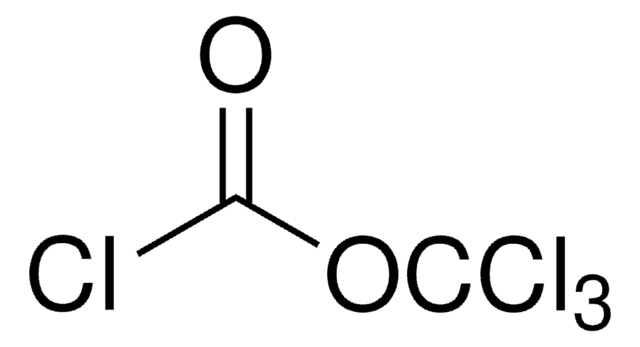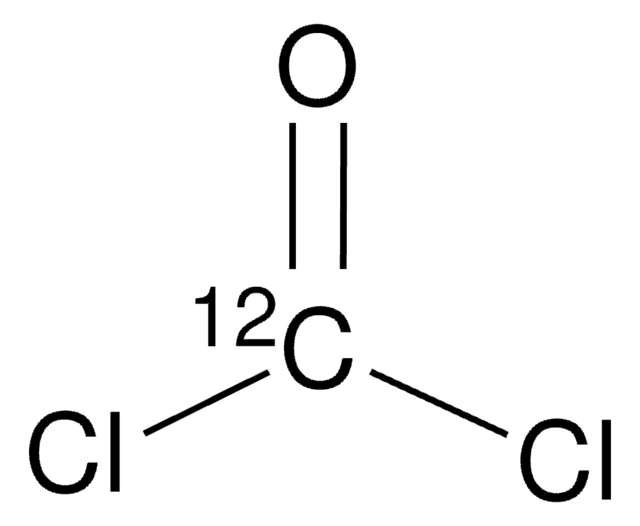79380
Phosgene solution
~20% in toluene
Synonym(s):
Carbon oxychloride, Carbonyl chloride, Phosgen
About This Item
Recommended Products
form
solution
Quality Level
reaction suitability
reaction type: Carbonylations
concentration
~20% in toluene
impurities
≤300 mg/kg benzene
functional group
chloro
storage temp.
2-8°C
SMILES string
ClC(Cl)=O
InChI
1S/CCl2O/c2-1(3)4
InChI key
YGYAWVDWMABLBF-UHFFFAOYSA-N
Looking for similar products? Visit Product Comparison Guide
General description
Application
Signal Word
Danger
Hazard Statements
Precautionary Statements
Hazard Classifications
Acute Tox. 2 Inhalation - Aquatic Chronic 3 - Asp. Tox. 1 - Eye Dam. 1 - Flam. Liq. 2 - Repr. 2 - Skin Corr. 1B - STOT SE 1 Inhalation - STOT SE 3
Target Organs
Central nervous system, Lungs
Storage Class Code
3 - Flammable liquids
WGK
WGK 3
Flash Point(F)
39.2 °F - closed cup
Flash Point(C)
4 °C - closed cup
Personal Protective Equipment
Regulatory Listings
Regulatory Listings are mainly provided for chemical products. Only limited information can be provided here for non-chemical products. No entry means none of the components are listed. It is the user’s obligation to ensure the safe and legal use of the product.
PDSCL
Poisonous substance
PRTR
Class I Designated Chemical Substances
ISHL Indicated Name
Substances Subject to be Indicated Names
ISHL Notified Names
Substances Subject to be Notified Names
JAN Code
79380-500ML:
79380-100ML:
79380-BULK:
79380-VAR:
79380-INTR:
Choose from one of the most recent versions:
Already Own This Product?
Find documentation for the products that you have recently purchased in the Document Library.
Customers Also Viewed
Our team of scientists has experience in all areas of research including Life Science, Material Science, Chemical Synthesis, Chromatography, Analytical and many others.
Contact Technical Service











